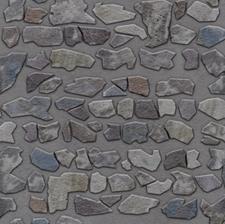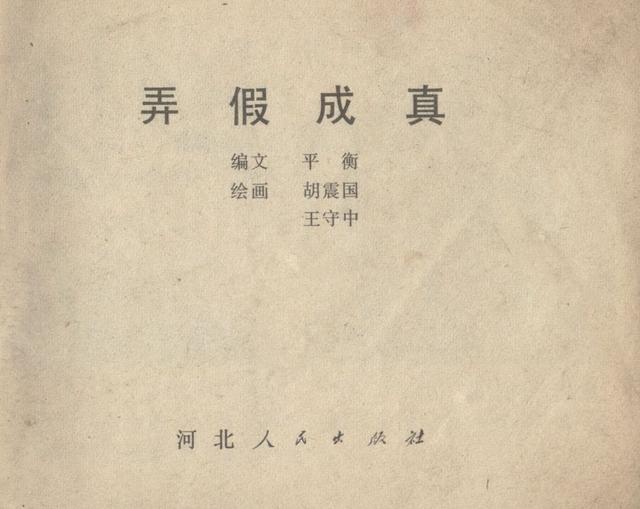One very important skill to have when having an English conversation is the ability to ask questions so the conversation keeps going smoothly.,下面我们就来说一说关于进行更好对话的十个方法 在于你是否会提问?我们一起去了解并探讨一下这个问题吧!

进行更好对话的十个方法 在于你是否会提问
One very important skill to have when having an English conversation is the ability to ask questions so the conversation keeps going smoothly.
进行英语对话时要具备的一项非常重要的技能是提问的能力,这样对话才能顺利进行。
In this English lesson, I'll teach you 10 very common questions that you can ask during an English conversation to do just that, questions you can ask that just make the conversation go smoothly and to make the conversation enjoyable for both people.
在这节英语课上,我会教你 10 个非常常见的问题,你可以在英语对话中问这些问题,这些问题可以让对话顺利进行,让双方都能愉快地交谈。
(upbeat music) (slide clicking) (keyboard clicking) The first question you can ask to help a conversation keep going smoothly is the question, "Would you do it again?" This is a great question to ask after someone's done something exciting.
(欢快的音乐)(幻灯片点击)(键盘点击) 你可以问的第一个问题是帮助谈话顺利进行的问题,“你会再做一次吗?”在某人做了一些令人兴奋的事情之后,这是一个很好的问题。
Maybe a friend of yours says, "Last weekend I went whitewater rafting." During that conversation, a great question to ask would be, "Would you do it again?" If the person really enjoyed it, they would respond and say, "Oh, definitely! I would definitely do it again." Or they might say something like this.
也许你的一个朋友说,“上周末我去白水漂流了。 ”在那次谈话中, 一个很好的问题是,“你会再做一次吗? ”如果这个人真的喜欢它,他们会回应说:“哦, 当然! 我一定会再做一次。 ”或者他们可能会说这样的话。
"I wouldn't do it again. It was too expensive," or, "I enjoyed it, but I wouldn't do it again because I didn't like it that much." So a great question to ask after someone does something exciting, "Would you do it again?" The second great question to ask in an English conversation, or two questions actually, "What happened next?" or "What did you do next?" Maybe someone is telling you a story and they haven't told you everything that happened.
“我不会再这样做了。它太贵了,”或者,“我喜欢它,但我不会再这样做了,因为我不太喜欢它。”所以在某人做了一些令人兴奋的事情之后问一个很好的问题,“你会再做一次吗?”在英语对话中要问的第二个重要问题,或者实际上是两个问题,“接下来发生了什么?”或者“你接下来做了什么?”也许有人在给你讲故事,但他们并没有告诉你所发生的一切。
Maybe they said, "I was walking along yesterday and I dropped my phone in the pool," and then they don't tell you anything else.
也许他们会说,“我昨天在散步时把手机掉在了游泳池里”,然后他们什么也没告诉你。
You could ask one of those two questions, "What happened next?" or "What did you do next?" Because you'll want to know if the phone still works.
你可以问这两个问题之一,“接下来发生了什么? ” 或者“你接下来做了什么? ”因为你会想知道手机是否还能用。
"Did you dive in the pool to get your phone?" "Did someone else who was swimming in the pool hand it to you?" So two great questions to ask, "What happened next?" or "What did you do next?" The third question you could ask someone is "How are you feeling today?" Now, this question is one you would ask in a specific circumstance.
“你潜入游泳池是为了拿手机吗?” “是别人在池子里游泳给你的吗?”所以有两个重要的问题要问,“接下来发生了什么?”或者“你接下来做了什么?”你可以问别人的第三个问题是“你今天感觉怎么样?”现在,这个问题是你在特定情况下会问的问题。
Maybe someone you know went skiing or did some kind of physical activity where they might be feeling a bit sore.
也许您认识的某个人去滑雪或进行了某种身体活动,他们可能会感到有点酸痛。
Maybe the person was sick recently, and during the conversation, you find out about it.
也许这个人最近生病了,在谈话中, 你发现了。
This is a great question to then ask.
这是一个很好的问题。
"How are you feeling today?" If someone went skiing, if I went skiing, my legs would be sore.
“你今天感觉怎么样? ”如果有人去滑雪,如果我去滑雪, 我的腿就会酸痛。
My arms would probably be sore.
我的手臂可能会酸痛。
I would probably be feeling a little bit old actually. (crowd gasping) So if I told someone I went skiing, they might ask me, "How are you feeling today?" And I might say, "Oh, not too bad.
实际上我可能会觉得有点老了。 (人群喘着粗气)所以如果我告诉别人我去滑雪了,他们可能会问我,“你今天感觉怎么样?”我可能会说,“哦,还不错。
I fell down a few times, but everything's okay." So the third great question to ask in that kind of situation, "How are you feeling today?" The fourth question you can ask is, "How was the weather?" This is a question you can ask when someone's talking about something that they recently did outside.
我摔倒了几次,但一切都很好。”所以在这种情况下要问的第三个重要问题是,“你今天感觉如何?”你可以问的第四个问题是,“天气怎么样?”这是当有人谈论他们最近在外面做的事情时,你可以问这个问题。
Maybe they went on a trip and they went to the beach.
也许他们去旅行了,他们去了海滩。
Maybe they went for a hike with their family on the weekend.
也许他们周末和家人一起去远足。
As they're talking about it, you could say, "How was the weather?" And they'll respond by saying, "Oh, the weather was great." Or, "It rained a little bit." (rain splashing) Or, "Overall, it was a nice sunny day." (sun popping) So whenever someone is talking about something they've recently done outside, a great question to ask, "How was the weather?" A fifth question you can ask is, "When did you get back?" This is a great question to ask when someone's talking about a trip that they just went on, or maybe they just went away for a day or for the weekend.
当他们谈论它时,你可以说,“天气怎么样?”他们会回应说,“哦,天气真好。”或者,“有点下雨了。” (雨水溅起)或者,“总的来说,这是一个阳光明媚的好日子。” (太阳爆裂)所以每当有人谈论他们最近在外面做的事情时,一个很好的问题要问,“天气怎么样?”你可以问的第五个问题是,“你什么时候回来的?”这是一个很好的问题,当某人谈论他们刚刚进行的旅行,或者他们可能只是离开一天或周末时。
You could say, "When did you get back?" It shows that you're curious about what they're telling you about.
你可以说,“你什么时候回来的?”这表明您对他们告诉您的内容感到好奇。
It shows that you're interested in what they're talking about in the conversation.
这表明你对他们在谈话中谈论的内容很感兴趣。
So if someone is talking about a trip that they just went on, a great question to ask, "When did you get back?" The sixth question you can ask someone in an English conversation, "Was it worth it?" This is a question you would ask after someone tells you that they went to something that costs money. (cash register dinging) Maybe they went to a concert and they had to buy a ticket.
因此,如果有人正在谈论他们刚刚进行的旅行,那么可以问一个很好的问题,“你什么时候回来的?”第六个问题你可以在英语对话中问某人,“Was it worth it?”这是在有人告诉您他们去了花钱的地方后您会问的问题。 (收银机响)也许他们去听了一场音乐会,他们不得不买票。
Maybe they went to a baseball game and they had to buy a ticket.
也许他们去看了一场棒球比赛,他们不得不买票。
If someone is telling you about something where they paid for the experience, you can definitely ask the question, "Was it worth it?" And they might then say, "Yeah, it was totally worth it. I would do it again." Or, "It wasn't worth it.
如果有人告诉你他们为体验付费的事情,你绝对可以问这个问题,“这值得吗?”然后他们可能会说,“是的,这完全值得。我会再做一次。”或者,“这不值得。
The ticket was $200 and we ended up sitting so far back, we could hardly see the players on the field," or maybe, "We could hardly see the singers on the stage." So great question to ask, "Was it worth it?" The seventh question you could ask starts like this.
门票是 200 美元, 最后我们坐得太远了,我们几乎看不到场上的球员, ”或者,“我们几乎看不到舞台上的歌手。 ”这个问题很好问, “这值得吗? ”? ” 你可以问的第七个问题是这样开始的。
"What made you decide to," and then you have to finish the question.
“是什么让你决定这样做, ”然后你必须完成这个问题。
"What made you decide to make bread at home?" "What made you decide to do yoga?" "What made you decide to learn how to play the violin?" When someone is telling you about something that they are doing or something that they did, it's a cool way to show that you're interested.
“是什么让你决定在家做面包?” “是什么让你决定做瑜伽?” “是什么让你决定学习如何拉小提琴的?”当有人告诉您他们正在做的事情或他们做过的事情时,这是表明您感兴趣的一种很酷的方式。
"What made you decide to start making YouTube videos, Bob?" Well, you know, I just wanted to figure out how to do it and everything since then has been history.
“是什么让你决定开始制作 YouTube 视频, 鲍勃? ”好吧,你知道的,我只是想弄清楚如何去做,从那以后一切都已成为历史。
So a great question to ask, "What made you decide to," and then you need to finish the question.
所以问一个很好的问题,“是什么让你决定这样做的, ”然后你需要完成这个问题。
The eighth question you can ask is, "Who did you go with?" This is a great question to ask after someone goes on a trip or after someone does something fun.
你可以问的第八个问题是,“你和谁一起去的?”这是一个很好的问题,可以在有人去旅行后或有人做了一些有趣的事情后问。
You could just say, "Who did you go with?" You want to show that you're curious.
你可以说,“你和谁一起去的? ”你想表现出你很好奇。
You would like to know who were the people who went on the trip with you, who are the people who did that fun thing with you.
你想知道和你一起旅行的人是谁,和你一起做那件有趣的事的人是谁。
So, "Who did you go with?" And they might answer by saying, "I went with my brother." Or they might even say, "Oh, I just went all by myself." So a great question to ask, "Who did you go with?" The ninth question you could ask is, "Have things settled down now?" This is a question you would ask if someone is telling you that things have been really busy at work, or they might be telling you that things have been really busy in their life.
那么,“你和谁一起去的?”他们可能会这样回答:“我和我兄弟一起去了。”或者他们甚至会说,“哦,我一个人去的。”所以问一个很好的问题,“你和谁一起去的?”你可以问的第九个问题是,“现在事情解决了吗?”这是一个你会问的问题,如果有人告诉你工作真的很忙,或者他们可能会告诉你他们的生活真的很忙。
You would then ask the question, "Have things settled down now?" In English, when something settles down, it means it goes back to normal.
然后你会问这个问题,“现在事情已经解决了吗? ”在英语中,当某事安定下来时,意味着一切恢复正常。
When you're busy at work, hopefully things settle down after a while.
当你忙于工作时,希望事情过一段时间就会平静下来。
If you're busy in life, hopefully things settle down after a while.
如果你的生活很忙,希望事情过一段时间就会平静下来。
So if a friend or someone in conversation says they've been busy, a great question to ask, "Have things settled down now?" The 10th question you can ask, "Do you have any regrets?" This is a question you would ask after maybe someone buys a house or spends a lot of money on something.
因此,如果朋友或谈话中的某个人说他们一直很忙,那么问一个很好的问题,“现在事情已经解决了吗?”第10个问题你可以问,“你有什么遗憾吗?”这是你可能会在有人买了房子或花很多钱买某物后问的问题。
This is a question you would usually ask after something big has happened in someone's life that they decided to do.
这是一个你通常会问的问题,当某人的生活中发生了重大事件并决定要做时。
You would say, "Do you have any regrets?" This means that are you happy with what you did or are there things that didn't go the way you wanted them to and now you're kind of feeling bad about doing that thing.
你会说,“你有什么遗憾吗?”这意味着您对自己所做的事情感到满意,还是有些事情没有按照您希望的方式进行,现在您对做那件事感到有点难过。
So the 10th question and the last question for this lesson, "Do you have any regrets?" Well, hey, thank you so much for watching this English lesson.
那么本课的第 10 个问题,也是最后一个问题,“你有什么遗憾吗?”嗯,嘿,非常感谢你收看这节英语课。
I hope the 10 questions that I taught you will help you in your next English conversation.
我希望我教给你的 10 个问题对你下次英语对话有所帮助。
I have to apologize.
我必须道歉。
I'm sorry that the background wasn't a little more varied this time.
很抱歉这次的背景没有多变一点。
I kind of stayed by my shed because it's extremely windy (wind gusting) out here, so I kind of had to stay out of the wind while making the lesson.
我有点待在我的棚子里,因为这里风很大(阵风),所以我在上课时不得不避开风。
But anyways, thanks for watching.
但无论如何,谢谢观看。
If this is your first time here, don't forget to click (bubble popping) that red Subscribe button.
如果这是您第一次来这里,请不要忘记单击(弹出气泡)红色的订阅按钮。
Give me a thumbs up, leave a comment, and of course, if you have time, why don't you stick around and watch another English lesson.
给我竖起大拇指,发表评论,当然,如果你有时间,何不留下来再看一节英语课。
(upbeat music)
(欢快的音乐)
,




